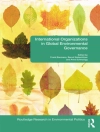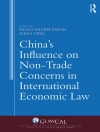As information becomes increasingly accessible through newly-introduced technologies, the human mind seeks a more comprehensive interpretation of the world in which we live. In order to manage this information overload, we must carefully reconsider our attitude towards documentation. While acknowledging the value of the standard guidebooks’ hard rules on documentation management, Tonfoni advocates a new approach that promotes additional skills required for consistent decision-making, such as information sensitivity. This book has been conceived as a movie on paper, and as such, can be considered a ‘documentary on documentation’. Readers are invited to analyse their own reading experience throughout a set of pages, to become ‘interactive on paper’; some space is intentionally provided for practice and annotation. Exercises are included to help readers consolidate new skills, through an innovative ‘learning by seeing’ experience. Since history is based on documentation, every e-mail or memo we write becomes a part of our individual history. This book will be invaluable to those whose careers rest on accuracy, who need to create both succinct and clear reports and presentations.
Jadual kandungan
Chapter One
Documentation management: an art and a science
Chapter Two
Documentation management through metaphors and analogies
Chapter Three
On envisioning documentation
Chapter Four
On iconizing documentation
Chapter Five
On visualizing documentation
Chapter Six
A few more exercises
Chapter Seven
Conclusions
Bibliography
Index
Mengenai Pengarang
Dr. Graziella Tonfoni, an italian born scholar, an internationally accredited pioneer in artificial intelligence, multimedia education, computational linguistics, information design, during most meaningful times, in the past century. She has constantly documented results of her innovations and theories, while she was a research professor at the Alma Mater Studiorum University of Bologna (1983-2015) also teaching her methodologies, widely, in many prestigious universities, to make sure that steady and verified innovation she introduced was well adapted respectfully of each historic and social context.
She has been a witness and a contributor to the making of most relevant theories in cognitive science, collaborating with outstanding personalities in the history of exploration of the human mind at MIT, as Marvin Minsky’s foreword to “Writing as a visual art” indicates. She has been herself the founder of a new comprehensive discipline, Computational Literature, meant to preserve accurately memories of most relevant books and chapters and articles, many of which were published by Intellect, at the initiative of Masoud Yazdani.












